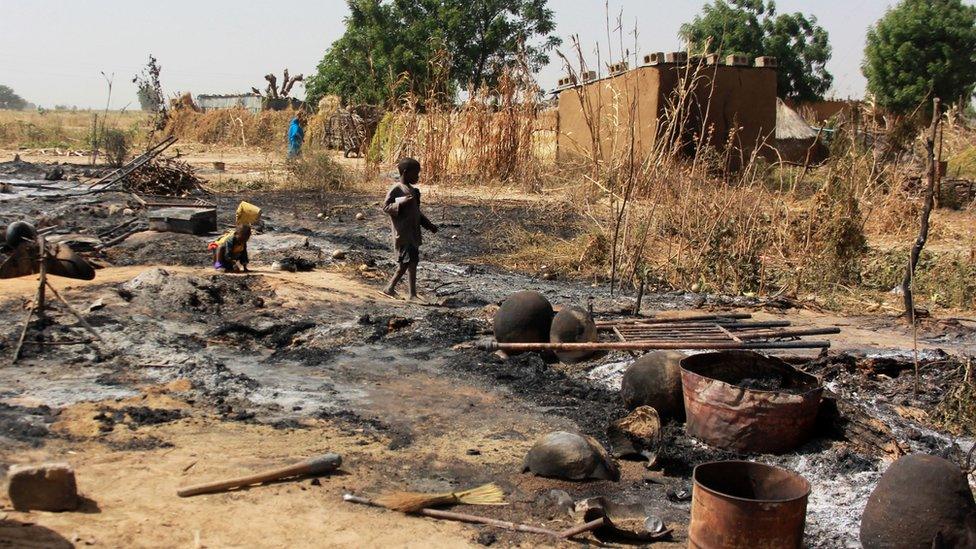Nigeria stampede: Deaths at Buhari rally in Port Harcourt
- Published
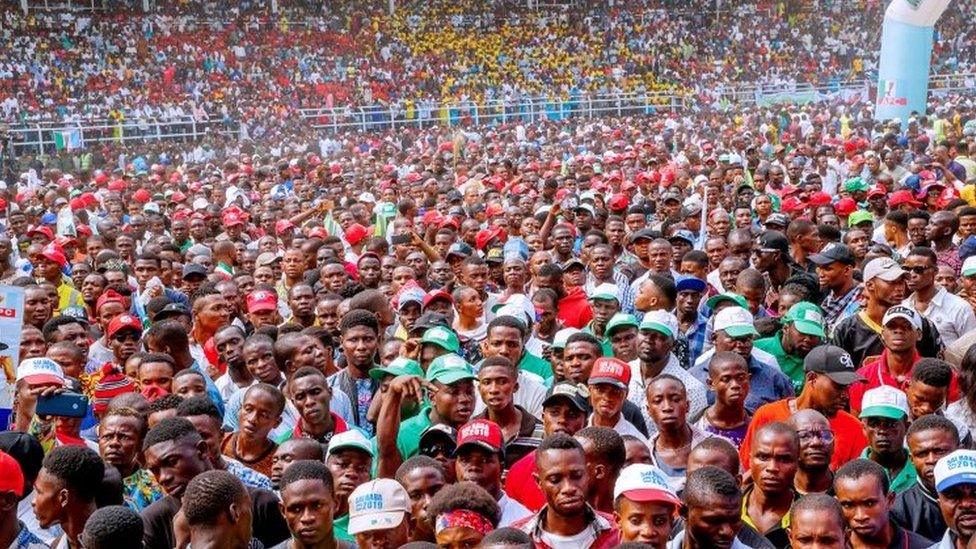
Tens of thousands of people attended the rally at Port Harcourt's stadium
At least 15 people have been killed in a stampede at a campaign rally for Nigerian President Muhammadu Buhari, a hospital spokesman says.
The incident happened at a stadium in the southern city of Port Harcourt when the crowd surged towards a gate after President Buhari's speech.
Mr Buhari is running for a second term in tightly contested elections due to be held on Saturday.
Former Vice-President Atiku Abubakar is seen as his main contender.
The two leaders have signed an agreement in the capital, Abuja, pledging to promote peace and follow the legal process if there is a dispute after the vote.
What happened at the rally?
The incident happened after President Buhari delivered his speech shortly after 15:00 local time (14:00 GMT) on Tuesday at the Adokiye Amiesimaka stadium.
Most of the victims are reported to have fallen and been trampled as the crowd tried to force its way through a partially locked gate to follow Mr Buhari as he left the arena.
The bodies of 12 women and three men were taken to the mortuary at the University of Port of Harcourt Teaching Hospital, spokesman Ken Daniel Elebiga said.
Twelve people were admitted for treatment but three have since been discharged, he added.

You may also be interested in:

Mr Buhari's office said the president had been informed about "the tragic deaths of several members of his All Progressives Congress [APC] party in a stampede".
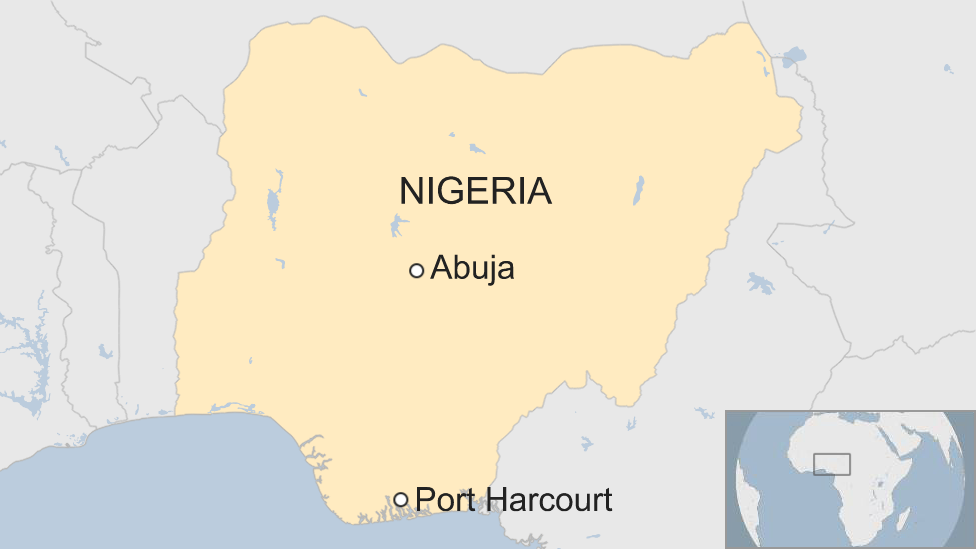
- Published11 February 2019
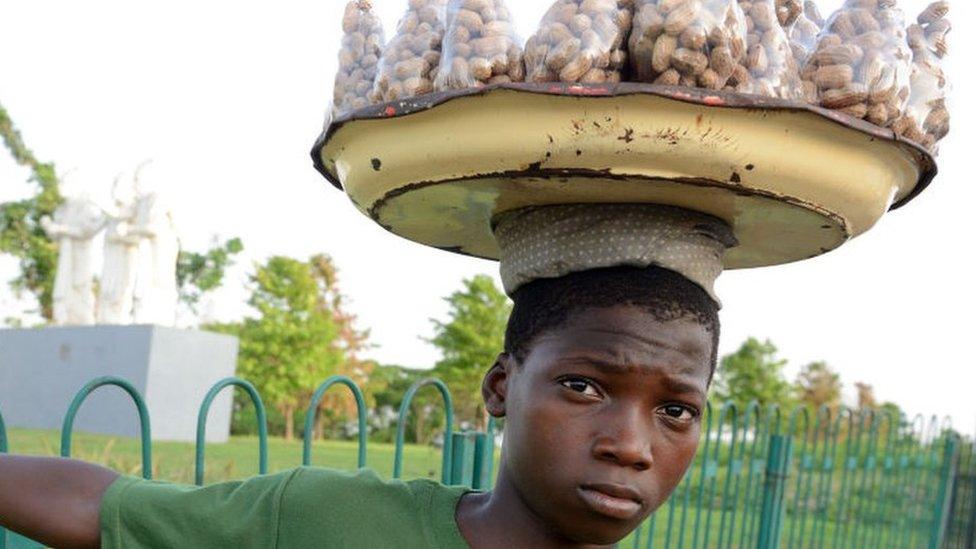
- Published10 February 2019
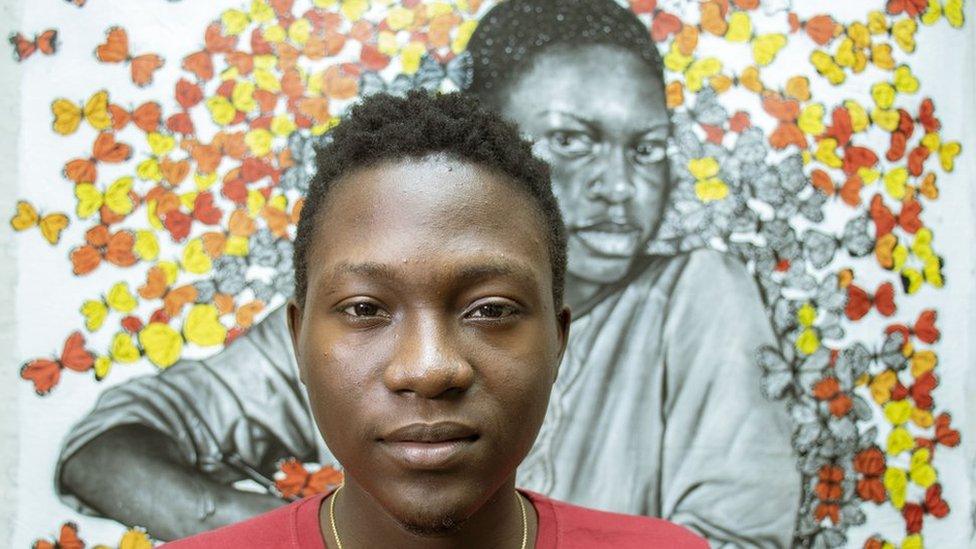
- Published4 February 2019
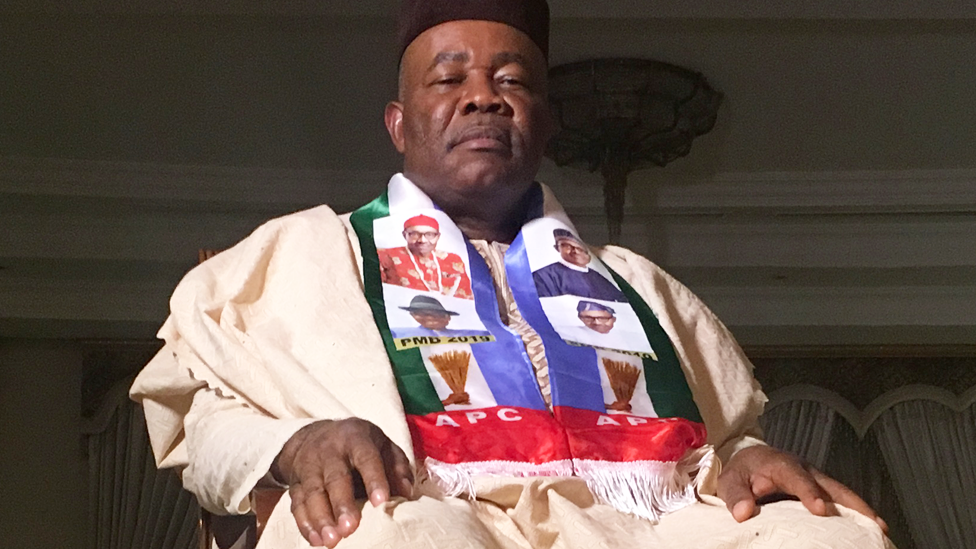
- Published9 February 2019
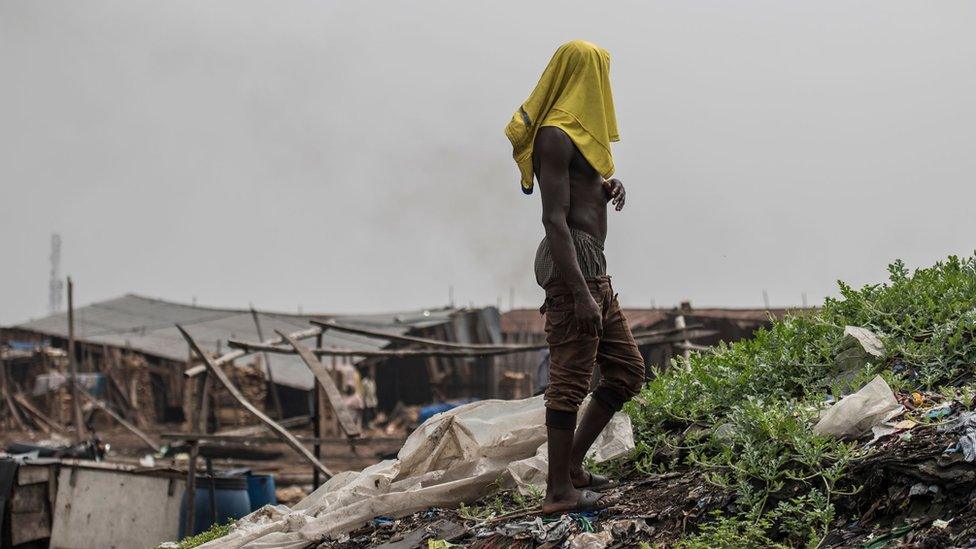
- Published8 February 2019
